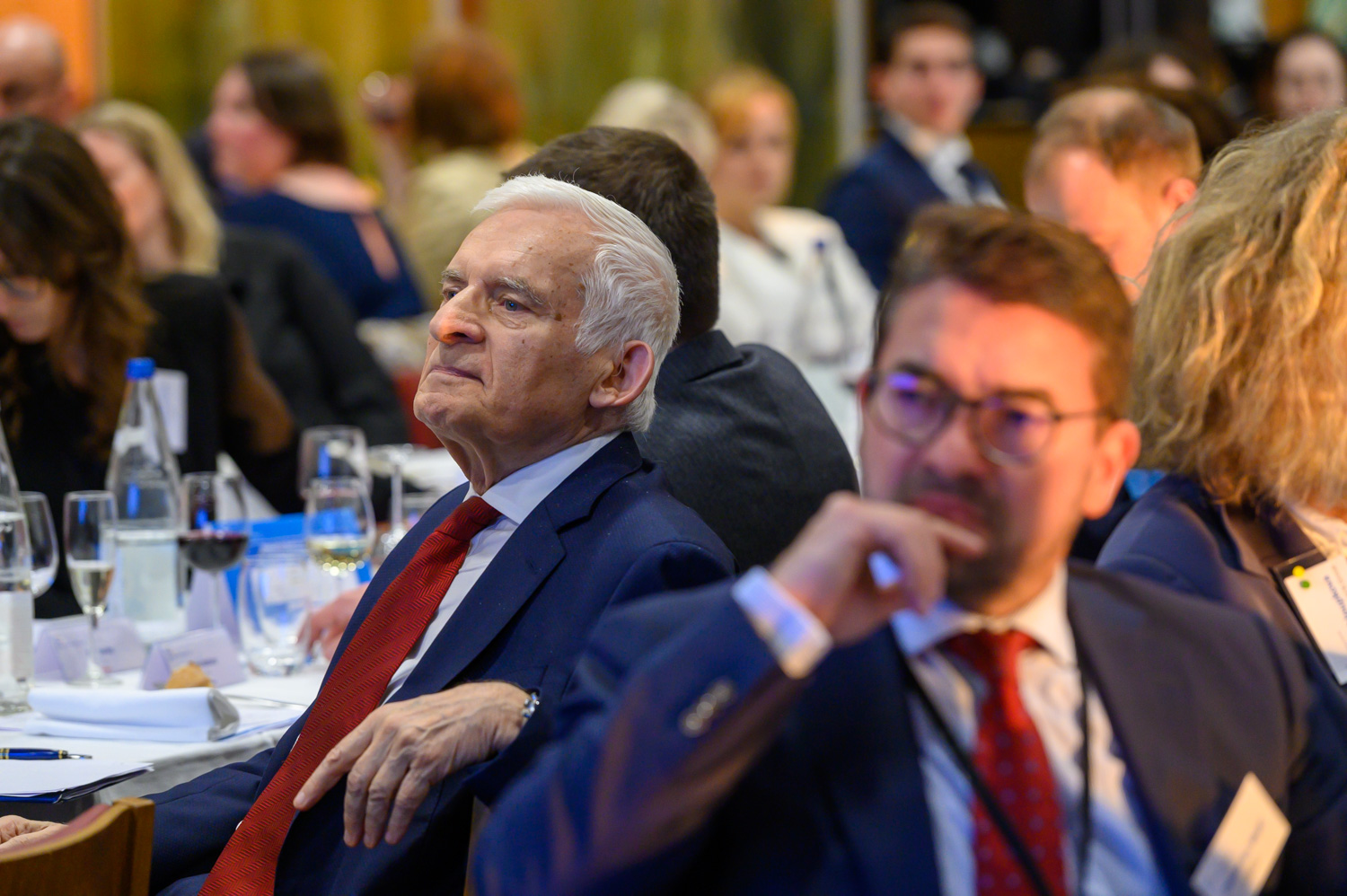Electricity Market Design: a discussion with the industry
Chaired by Jerzy Buzek MEP, President of the EEF
Speakers:
Erkki Maillard, Vice-President of EU Affairs and Diplomatic Adviser to CEO, EDF
Derk Swider, Vice President of Foresight & Analytics, E.ON
Wanda Buk, Member of the Management Board, PKEE
Mechthild Wörsdörfer, Deputy Director-General, DG ENER, European Commission
MEP Zdzisław Krasnodębski, EEF Active Member
Following a first exchange with Commissioner Kadri Simson right after the publication of the Electricity Market Design reform, the EEF hosted a follow-up discussion with its Associate and Active Members to analyse some of the main provisions of the proposal.
Our EEF President, Jerzy Buzek MEP opened the debate underlining that the continuous dialogue and exchange among energy stakeholders and European institutions is essential in delivering a reform that is able to improve the current shortcomings of the market, while being feasible for European energy industries.
Erkki Maillard, Vice-President EU Affairs and Diplomatic Adviser to CEO, EDF praised the Commission’s proposal for taking a technology-neutral approach, allowing all electricity producers to benefit from long-term signals, which he considered to be essential for investments in electricity generation, decarbonization and energy savings. He stressed that long-term signals are key in limiting the volatility to which consumers and producers are continuously exposed. For this reason, PPAs for all utilities are essential to foster liquidity in the market. Mr Maillard also emphasized the importance of maintaining voluntary CfDs and contractual innovation. Finally, he discussed consumers’ protection and empowerment by pointing out some controversial aspects of the reform such as the rollout of smart-meters at home and fixed-price contracts that may undermine the liquidity of the market.
Derk Swider, Vice-President Forensic and Analytics, E.ON highlighted the importance of having a fully liberalized energy market – a liquid market – through a doubled ambition in investments, to be ensured by a reliable and stable framework. He discussed how the inclusion of symmetrical CfDs in the proposal has the potential to make renewables investable for a broader range of companies and, therefore, beneficial to the liquidity of the market. However, he also stressed that such CfDs should be balanced to ensure utilities still need to hedge their positions. In his conclusion, Mr Swider emphasized the importance of securing adequate backup capacity and flexibility to the system and improving grid connections between countries through grid expansion and digitalization.
Wanda Buk, Member of the Management Board, PKEE suggested that the reform should be narrow and targeted, rather than deep and comprehensive, as some important parts of the Clean Energy Package (2018-2019) have not yet been implemented by the Member States. She stressed the need to avoid extending the extraordinary measures of the energy crisis to prevent further costs to companies. Ms Buk also underlined the importance of leaving the short-term markets and marginal pricing untouched, while adjusting the design of CfDs to the current market reality, as investors need predictability and certainty. Besides, she highlighted the need to balance consumer protection and market, by investing part of the excessive profits from CfDs into renewables. She further emphasized that modernization, availability of investments and the simplification of permitting and administrative procedures are key for the development of transmission and distribution networks. Finally, Ms Buk underlined the importance of relying on existing flexibility technologies like coal, gas and nuclear to provide stable and dispatchable power to the system.
Mechthild Wörsdörfer, Deputy Director-General, DG ENER, European Commission explained that the proposal was made in response to the current energy crisis, which has revealed the shortcomings of the current system: volatile and very high gas and electricity pricing. She pointed out that the reform aims to provide more stability and predictability to the markets, through long-term price signals in the form of PPAs and CfDs. She also agreed about the need for flexibility and storage in the EU and highlighted that the reform was accompanied by a Communication and a Recommendation on energy storage. Concerning market liquidity, she discussed the promotion of virtual hubs to allocate transmission rights transparently. She further highlighted the centrality of grids and the need to upscale their presence in the market, also for renewables. Finally, she examined the element of crisis contained in the reform, which allows Member States to intervene in price-setting in retail markets during a crisis, to ensure the availability of a minimum amount of electricity at an affordable price.
Zdzisław Krasnodębski MEP (ECR, Poland), Active Member of the EEF, Shadow Rapporteur on the Electricity Market Design reform raised concerns about the complexity of the proposed reform, which comes at a time when not all the provisions of the Third and Fourth Energy Packages have been fully implemented. He underlined that the European Parliament has a duty to strike a balance between flexibility of the market, the roles and the security, and the future prospects of the sector.
Maria da Graça Carvalho MEP (EPP, Portugal) – Shadow Rapporteur on the Electricity Market Design reform explained that in her view, the proposal of the Commission is a good balance between security of supply, market-oriented signals and putting the consumers at the centre. Although she is concerned about some of the provisions, she concluded that we need more Europe in our energy markets.
Our speakers’ interventions were followed by a lively Q&A session, during which the audience had an opportunity to exchange with them on various topics like investment signals and investment needs, grid extension, flexibility through nuclear and coal sources, energy storage and consumer protection.



